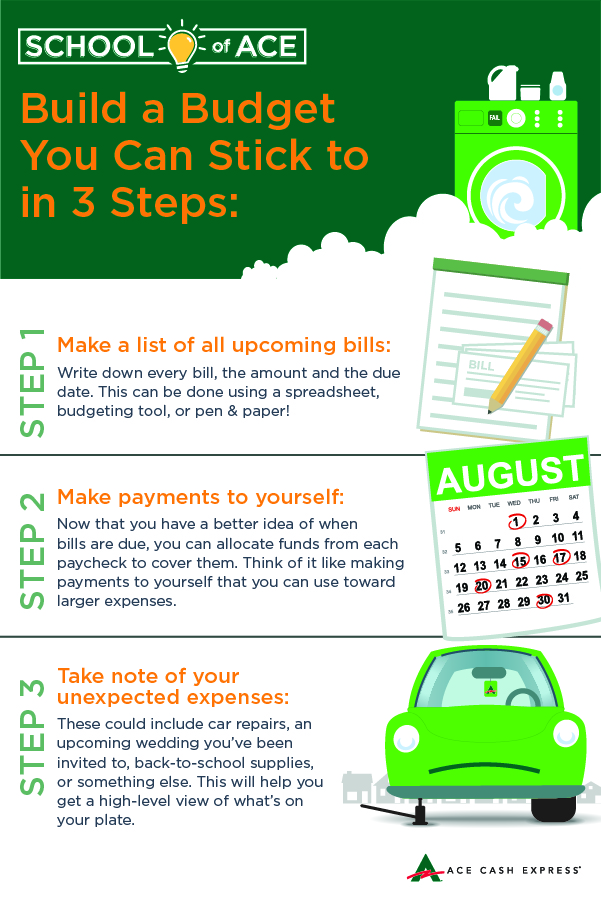Unexpected life events can wreak instant havoc on your budget. You’re driving to work when you get into an accident that totals your car. You find out you’re about to have a baby, and start getting serious about your physical health. Your kid’s headed off to college—and that is the longest school supplies list you’ve ever seen.
When major life events happen, you may find yourself spending more than you’re used to in certain areas. Now, more than ever, it’s helpful to set and stick to a budget, but how can you do it when you’re already working hard to make ends meet, and then life decides to happen?
Our Helpful 3-Step Method to Plan a Budget Planning
1. Make a list of all your upcoming bills.
You may already have a spreadsheet or other budgeting tool where you track what’s due, and when. If you don’t, you can easily get started with just pen and paper. Write down every bill that’s due, the amount, and the date. If you’re a visual person, it can be helpful to use a blank calendar layout to visualize each week of due dates.
2. Take note of your unexpected expense.
Your unexpected expenses may be car repairs, an upcoming wedding you’ve been invited to, back to school supplies, or something else.
- Medical Bills
- Car repairs
- Wedding gifts
- Co-pays
- Utilities
This will help you get a high-level view of what’s on your plate. If you know you have a specific event or scheduled appointment on a certain day, add it to your calendar. Seeing all your upcoming expenses at a glance can help you better prepare how to manage each paycheck.
3. Put yourself on a payment plan.
Rent: $1000
Car: $300
Car Repairs: $500
When you add up major expenses like these, plus smaller regular payments like phone bills, gas, and food, figuring out how to pay for it all can feel daunting. Now that you have a better idea of when bills are due and can view them at a glance, you can allocate funds from each paycheck to cover them. Think of it like putting yourself on a payment plan for your larger expenses.
Let’s say you get paid bi-weekly. You can look ahead at your expense calendar to see that you have one major expense and several smaller bills. Plan to allocate funds to cover the smaller bills first. Then, plan to put away a portion of your checks toward the major expense. Rather than waiting and anticipating to pay for a major expense all at once, you can “save” up for it and still keep your budget open for other minor expenses.
Urgent, major expenses can throw life off balance. By taking a step back and putting a plan in place, you can gain back control of your financial life. If you still need help making ends meet, ACE is here to help. Our short-term loans can help you get back on your feet quickly, so you can plan for a better financial future.
See what ACE loans are available in your state.

